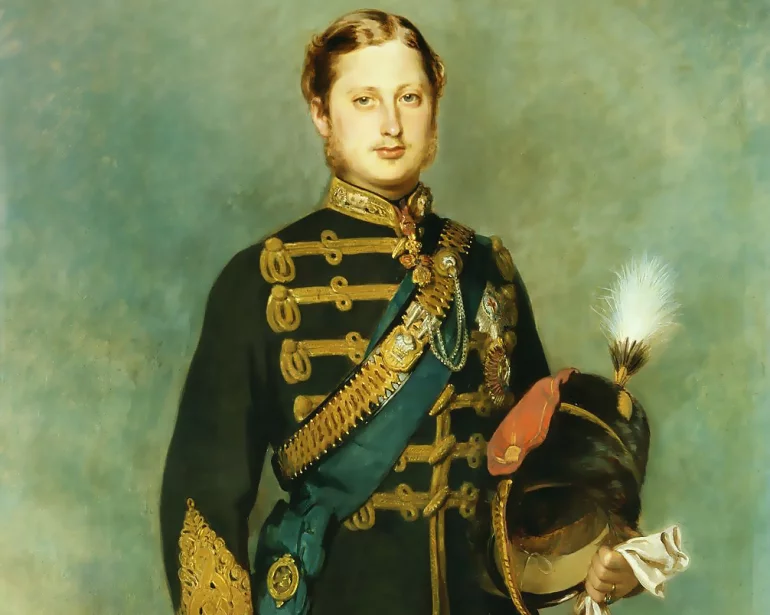The main character of this story was not a skilled, fleeced casino cheater. Moreover, he was quickly caught trying to deceive opponents at the card table. And still, he went down in history as one of the most legendary fraudsters. You will understand why.
When it comes to professional and new players capable of cheating, you can imagine people from dysfunctional families, dodgy criminals, and other unreliable people. The image of scammers at the gaming table is not associated with the higher nobility, nor with members of the British royal family.

The Royal Baccarat Scandal
However, in the late nineteenth century, a shameful event was commonly known as the royal baccarat scandal. It's hard to believe, but the future King Edward VII, the then Prince of Wales, and his closest friend, the Baronet Sir William Gordon-Cumming, were involved.
In September 1890, they played baccarat, which was prohibited in the UK at the time. The game took place at the Tranby Croft mansion, owned by shipbuilder Sir Arthur William.
It is easy to guess that only the cream of society was invited to that meeting, so the possibility of cheating seemed absurd.
Imagine the surprise of guests when they noticed that Sir William Gordon-Cumming surreptitiously added chips to his bets when winning and took them away from the bets when losing. The next day, the situation repeated, and the cheater's revenue was more than £ 200.
We should note that the Baronet was a Colonel of the famous Scots Guards. He took part in military operations in Africa and had an annual income of eighty thousand pounds, which was a considerable amount at the time. Witnesses refused to believe their eyes, but some still dared to resent it.
William Gordon-Cumming was unmasked, and under pressure, he was forced to admit the facts. He even made a written notice stating that he would never sit at the gaming table, and the participants of the incident promised not to make it public.
Yet there were women among the guests, and one of them, Lady Daisy Brooke, did not know how to hold her tongue. She even had the nickname Chatterbox for that. Of course, she told everyone about what happened. William Gordon-Cumming was no longer invited to social events, and he became an outcast. The Prince of Wales also stopped communicating with him.
The colonel was so embarrassed that he dared to sue, alleging that the ill-fated participants of that meeting were. The British public was shocked when the future king was summoned to the hearing as a witness in the case of card fraud. The Prince was forced to confess that he was playing baccarat, which was prohibited.
As for Sir William Gordon-Cumming, he failed to defend his dignity. The testimony witnessed was enough for the court to reject all his claims. The colonel was fired from the army. And the Prince continued to play cards, although he had since then preferred whist.
This case was mentioned in the press, literature, theater, film, and radio many times. Even the famous writer Ian Fleming used it in one of the James Bond novels.
Conclusion
Each client of an online or land-based casino, if he's thinking of cheating, should recall the history of Sir William Gordon-Cumming. He lost his position in society, ruined his reputation, lost the support of the future King of Great Britain, and was forced to retire due to petty fraud, which resulted in a relatively small amount of money.
























